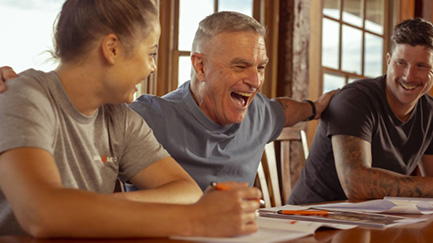Heart health is an important consideration for your physical health. Coronary Heart Disease (CHD) is the leading cause of death in Australia. Read our tips on how you can improve your heart health.
CHD and other Cardiovascular Diseases (CVD) can be prevented through lifestyle modifications. There are several comorbidities associated with heart disease that can impact your social, physical and mental wellbeing, leading to poor quality of life and mortality. You may also have experienced a decreased level of physical activity since leaving the defence force.
There are both modifiable and non-modifiable risk factors when it comes to your heart health. Non-modifiable risk factors are things that you cannot change about yourself such as age, biological sex and ethnicity. While we cannot change these risk factors, we can manage the risk by making little changes to our modifiable risk factors.
Modifiable factors include: Poor diet, low physical activity levels, smoking status, obesity, High blood pressure, high cholesterol and elevated blood glucose levels (BGLs). Making positive modifications to our lifestyle can reduce our risks of developing CVD.
At Mates4Mates we run several programs which can really help offset your risk of poor heart health. Two main factors that can improve several risk factors are diet and exercise. A good diet can help lower cholesterol and blood glucose levels. Exercise can help lower BGLs and blood pressure independent of medication. Exercise can also increase our “good” cholesterol and lower our “bad” cholesterol.
Here are some tips to improve your heart health:
- Eat a healthy diet of wholefoods and limit processed foods high in sugar, fats and salt to keep arteries healthy.
- Jump into some of our group PT classes or social connection activities such as the bike ride.
- Organise an individual review with the physical recovery team - contact the team and discuss your options.
- Start small – 10 minute bouts might be enough initially, slowly adding minutes to your training on a gradual basis.
- Aim for smoking cessation to help arteries maintain good blood flow and oxygen levels- you may need to work closely with a health professional to achieve this
For more information or to book an appointment contact your friendly physical recovery team on 1300 4 MATES.
Written by Mates4Mates Exercise Physiologist, Nami Terada


